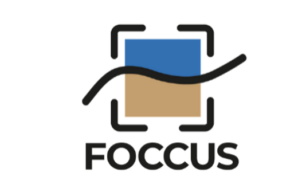FOCCUS enhances CMEMS (Copernicus Marine Environment Monitoring Service), for effective uptakes from the EU Member states to ensure a more sustainable Blue Economy and coastal resilience to climate change

36 months from 01/01/2024 to 31/12/2026
General aims
FOCCUS aims at enhancing CMEMS (Copernicus Marine Environment Monitoring Service), integrating Copernicus and European Member states coastal services, through seamless and fit-for-use monitoring and forecasting of the ocean from global to regional and coastal scales. Novel approaches (i.e. new space and in-situ observations, innovation in data fusion, processing and visualisation, numerical coastal predictions with interfaces for downscaling from CMEMS) will be used for effective uptakes from the Member states to ensure a more sustainable Blue Economy and coastal resilience to climate change.
CMCC role
CMCC participates in WP1, WP4, WP5, WP6, WP7, WP8, WP9, WP10, WP11, leading the WPs 5 (on the land-ocean continuum) and 8 (on the coastal applications), and co-leading the WP4 and 9 with SMHI and DELTARES respectively.
Particularly CMCC will:
-Assess, calibrate and improve performances of model systems for hydrology and estuaries
-Assess the current state of Land-Ocean Continuum model interface, methodologies and approaches, improving the model-based monitoring system for the EU CMEMS downscaled systems
-Design and test modelling interfaces between CMEMS and MSCS, mapping parameters such as circulation, waves, sediments and biogeochemistry
-Exploit synergies between models and observation for data assimilation
-Implement new modelling techniques for operational forecasting (e.g. ensemble coastal chains in the west Mediterranean)
-Connect coastal observing and modelling systems to better monitor coastal erosion dynamics in the Adriatic Sea
-Build and demonstrate applications related to natural and anthropogenic hazards (e.g. MHWs) and promote resilience to climate change through nature-based solutions (e.g. seagrass restoration in the Lazio coastal area)
Activities
FOCCUS project is structured in 11 work packages (WPs). Besides WP1 (Management), which coordinates data management and IT architecture throughout the project duration, the other WPs are paired and organised in two phases, namely Design and Test (phase 1) and Validation and Demonstration (phase 2):
WP2 and WP3 cover respectively the phase 1 and 2 for “Innovative coastal observations ”
WP4 and WP5 cover respectively the phase 1 and 2 for “Land-Ocean Interfaces”
WP6 and WP7 cover respectively the phase 1 and 2 for “Integrated coastal models”
WP8 and WP9 cover respectively the phase 1 and 2 for “Applications to support MS requirements “
WP10 and WP11 cover respectively the phase 1 and 2 for “Dissemination, Communication and uptake”
Expected results
FOCCUS project general objectives are translated into several expected results.
Particularly FOCCUS aims at generating:
-An inventory of EU MSCS (Member States Coastal Systems);
-14 pilot applications targeting key coastal applications;
-New observation products (from in-situ and land-based and satellite remote sensing development; from data fusion and for satellite calibration and validation);
-New pan-EU datasets of modelled river discharges for use in ocean models;
-1 Estuary box model for river forcing of ocean model;
-Technological developments for observation processing, model coupling interfaces, data fusion, data assimilation, ensemble forecasting;
-Results to be uptaken for stakeholders and Member States institutions;
-Strengthened ties with other relevant EU and international programmes associated to this project (e.g. UN Decade; EMODnet; GEO; GEOSS; DTO; DestinE)
Coordinating organization
- HELMHOLTZ-ZENTRUM HEREON GMBH (HEREON)
Partners
- MERCATOR OCEAN (MOi)
- FONDAZIONE CENTRO EURO-MEDITERRANEO SUI CAMBIAMENTI CLIMATICI (CMCC)
- SERVICE HYDROGRAPHIQUE ET OCÉANOGRAPHIQUE DE LA MARINE (SHOM)
- COLLECTE LOCALISATION SATELLITES (CLS)
- SOCIB – CONSORCIO PARA EL DISEÑO, CONSTRUCCIÓN, EQUIPAMIENTO Y EXPLOTACIÓN DEL SISTEMA DE OBSERVACIÓN COSTERO DE LAS ILLES BALEARS (SOCIB)
- CONSIGLIO NAZIONALE DELLE RICERCHE (CNR)
- STICHTING DELTARES (DELTARES)
- STIFTELSEN NANSEN SENTER FOR MILJØ OG FJERNEMÅLING (NERSC)
- METEOROLOGISK INSTITUTT (MET.NO)
- SVERIGES METEOROLOGISKA OCH HYDROLOGISKA INSTITUT (SMHI)
- ATLANTIC ASSOCIACAO PARA UM LABORATÓRIO COLABORATIVO DO ATLÂNTICO (+ATLANTIC)
- INSTITUT ROYAL DES SCIENCES NATURELLES DE BELGIQUE (RBINS)
- MARITIME HYDROGRAPHIC DIRECTORATE (MHD)
- EUROPEAN GLOBAL OCEAN OBSERVING SYSTEM (EUROGOOS)
- BROCKMANN CONSULT GMBH (BC)
- DANMARKS METEOROLOGISKE INSTITUT (DMI)
- INSTITUT FRANCAIS DE RECHERCHE POUR L’EXPLOITATION DE LA MER (Ifremer)
- SEASCAPE BELGIUM (SSBE)
Twitter: FOCCUS_EU

